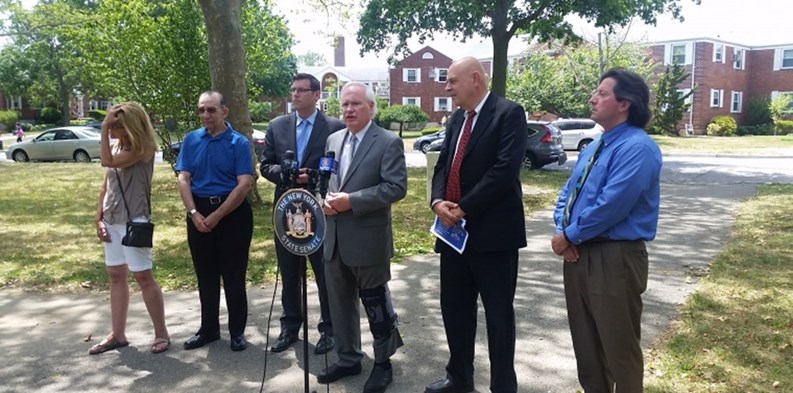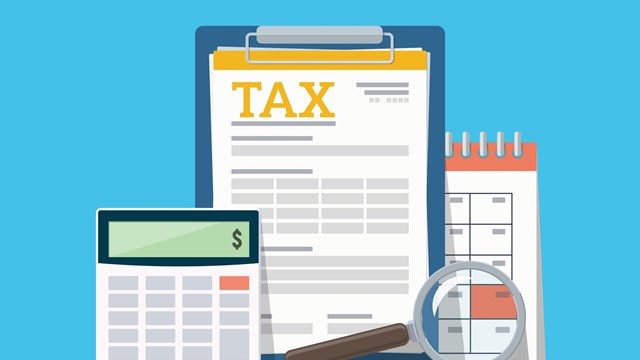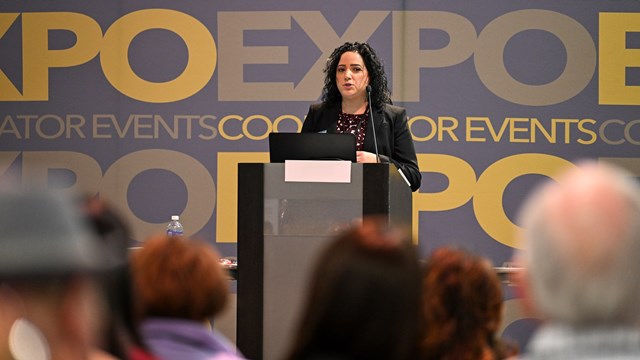Editor’s Note: The web article published on 7/14/16 “Give Me a J-51” by John Zurz on legislation sponsored by State Sen. Tony Avella and Assemblyman Edward Braunstein on the J-51 tax abatement program, has been corrected to clarify that the bills have not yet been signed into law by Gov. Andrew Cuomo. The bills received unanimous legislative support and await Cuomo’s signature or veto. Additionally, New York City Mayor Bill de Blasio recently approved separate legislation to extend the program to June 30, 2019.
Described as a thoroughly unsexy issue, the J-51 tax abatement for co-ops and condos is proposed to be expanded to $32,000, thanks to bills sponsored by New York State State Assemblyman Edward Braunstein (D-26) and Senator Tony Avella (D-11).
The legislation has passed the State Senate and Assembly, and now awaits Gov. Andrew Cuomo's signature or veto, although there is every indication he will sign it into law.
Extended in New York City
On the local level, Mayor Bill de Blasio recently signed Intro 1118, a local law which amended New York City's real property law, and extended the J-51 tax abatement program for city properties through June 30, 2019.
The J-51 tax abatement program was meant to give a tax abatement to residential apartment buildings, and co-ops and condos with assessments under $30,000, that are undergoing renovations. Originally begun in 1955 as a way to encourage building owners to install hot water plumbing in their properties, since then, the program has expanded to include just about every major capital improvement you could name, including things like window replacements, elevator replacements and upgrades, electrical rewiring, major roof repair, plumbing overhauls, major façade work, and sewer line repairs. In addition to benefiting landlords, the J-51 abatement is also available to developers converting commercial or industrial buildings to residential, and to rental buildings converting to co-op or condo.
The program was expanded again in 1992 to include co-ops and condos with an assessment of $40,000 or less. In 2013, New York City revised the program to only cover co-ops and condos with assessments under $30,000 that are undergoing renovations. Any building that is part of this program would be able to recover about 75 percent of the costs of the improvements they made on the building and due to the fact it can potentially take years to be approved, these benefits are retroactive. By using the J-51 program, co-ops and condos are able to keep maintenance fees down and save residents money while still making repairs and improvements on the buildings they live in.
Money for Renovations
In a statement, the president of the Glen Oaks Village Co-op, Bob Friedrich, who is also the founder and co-president of The President's Co-op Council, a coalition of board presidents in Queens, said: “As president of the largest garden apartment co-op in New York, I cannot understate the importance of the J-51 tax exemption program. We just completed installing over 18,000 new energy efficient windows in Glen Oaks Village. We could not have done this without the benefit of the J-51 abatements that provided nearly 38 percent of the cost of this massive program in dollar for dollar tax reductions.
“Without the J-51 program, monthly maintenance would have had to increase 16 percent to fully pay for these new windows, which would have been devastating to many of our seniors and working class families. This issue is not sexy and does not garner much conversation around the dinner table, but is truly one of the most important programs that help keep our affordable co-ops affordable.”
The original proposal called for co-ops and condos with assessments of $50,000 or less to gain access to the J-51 program, but it eventually was settled on $32,000 with a cost of living increase every year that would max out at assessments of $35,000 or less.
“It was one of a number of issues that the co-op presidents brought to our attention and was something we wanted to do right away,” said Avella.
Reaching the Summit
Last December, Avella and New York State Senator Jeffrey D. Klein, D-34, both of whom represent Queens and the Bronx, conducted a two-day summit in which the property tax classification issue and the J-51 abatement were discussed with local co-op and condominium associations and board presidents.
“Out of those meetings, a number of issues came up, but it’s not only learning about what issues face co-ops and condos but how to mobilize what can be a real political force that before now hasn’t made its impact on the city,” said Avella. “So our goal was two-fold: to find out what we need to do to help, and then to get them organized so they can get some real attention and things done.”
John Zurz is a staff writer for The Cooperator and other publications.







2 Comments
Leave a Comment